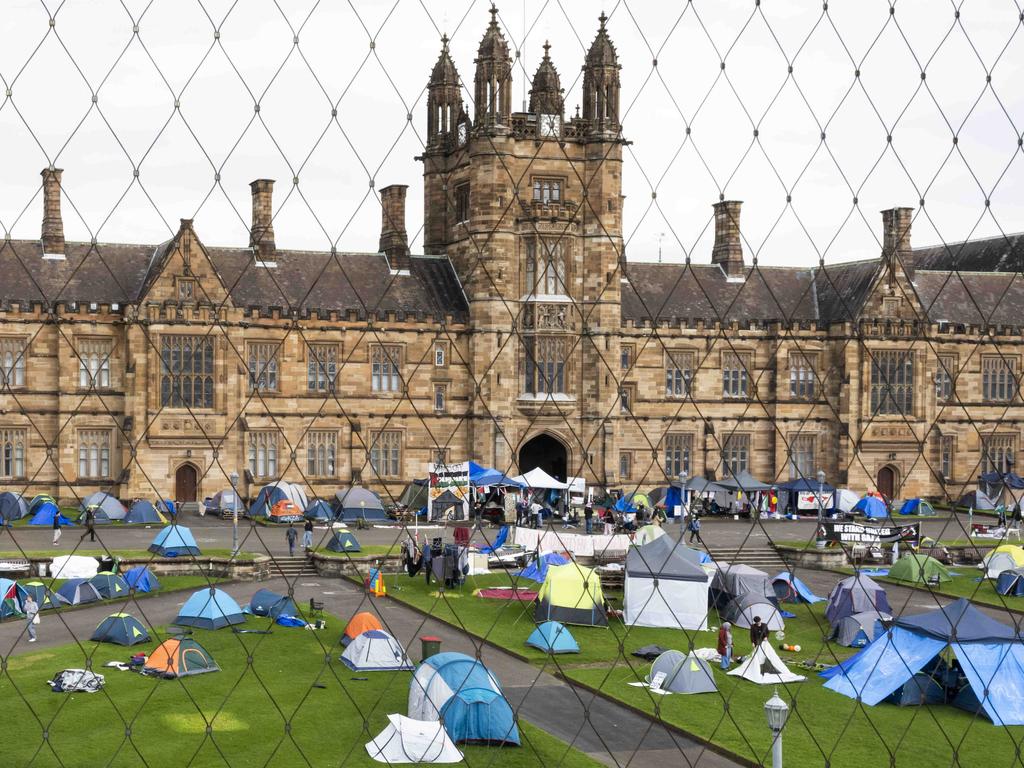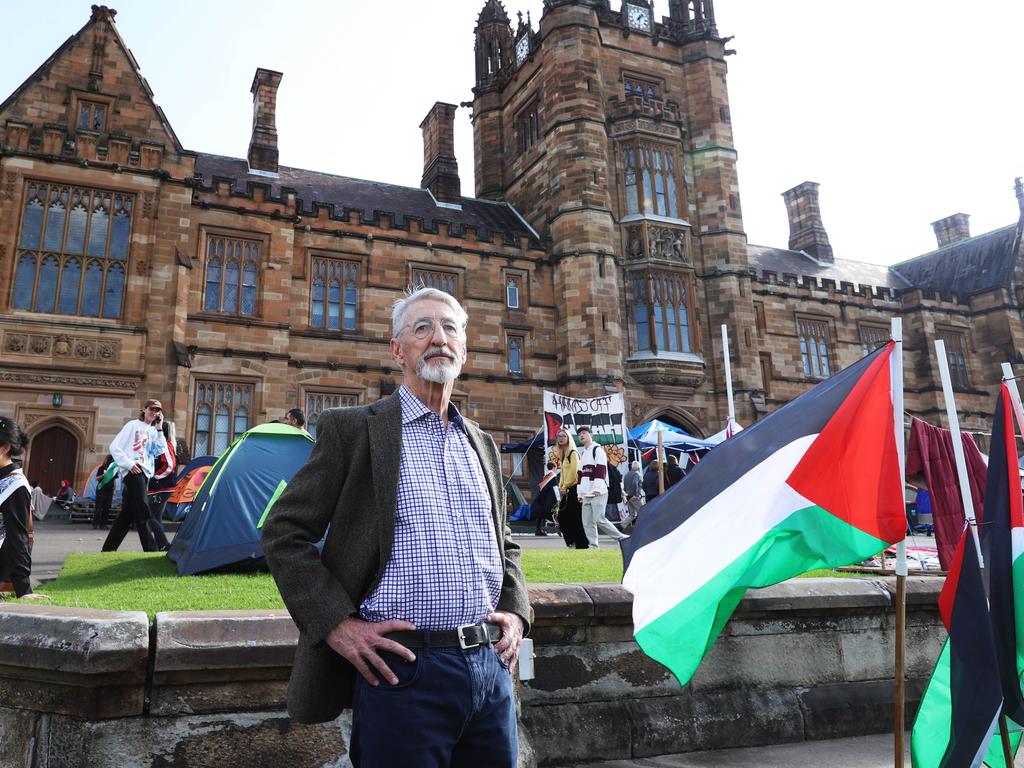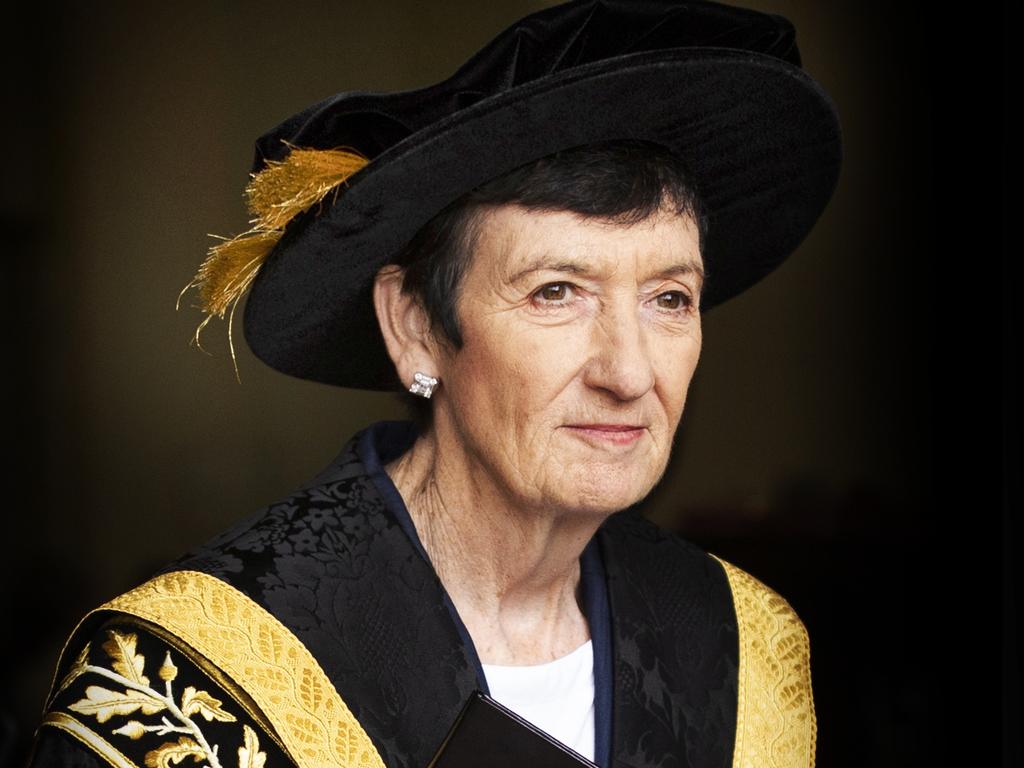University protests must strike balance of free speech and safety

Some view these actions as a legitimate form of protest. The university does not. If an investigation currently under way proves these protesters have crossed the line from peaceful protest to unacceptable conduct, disciplinary action will be taken.
As campus protests continue worldwide, an intense debate continues. At one end are calls to silence dissent by forcibly dismantling all encampments on university grounds, whether peaceful or not. At the other are those who believe intimidation, harassment, and even violence and law-breaking are legitimate tools in their fight.
At the university, we have been clear. Our overriding priorities are to ensure the safety of our community, ensure our campus remains peaceful and respectful, and that university activities continue uninterrupted. Since April 23, when the protest began, classes, graduations and our Anzac Day dawn service have all proceeded.
Understandably, many people have passionate views on Israel and Palestine, and are rightly concerned about the horrific October 7 attacks and the continuing conflict and shocking loss of life in the Middle East. These issues are deeply distressing, and polarised debates about the conflict encourage further division. Our aim is to de-escalate tensions rather than fuel them, and foster understanding and learning.

In line with the university’s Charter of Freedom of Speech and Academic Freedom – updated following the French Review commissioned by the former federal government – we recognise peaceful protest is a legitimate expression of free speech. Political speech can be deeply uncomfortable – but we will not tolerate it crossing over into racism, threats to safety, hate speech, intimidation, bullying or unlawful harassment on our campuses. We have always condemned racism in all forms, and have condemned anti-Semitism explicitly many times since October 7. There is no difference between the views expressed on the front page of this masthead by Western Sydney University chancellor Jennifer Westacott and my own.
I completely reject any suggestion the university – or as stated on Sydney radio last week, that I in particular – have fostered an unsafe environment for Jewish students and staff, or sympathised with anti-Semitic views.


We recognise the difficult debate about phrases such as “intifada” and “from the river to the sea”. What can be agreed is that criticism of Israel and Israel’s foreign policy conduct must never descend into anti-Semitism. We have implored members of our community to use clear phrases instead of slogans that are open to different interpretations or misinterpretation, especially when they know how offensive and upsetting they are for some.
But it is hard to argue that phrases that can be used elsewhere without repercussion are unacceptable within our borders. We do not believe, nor understand, how our campus can be a place where people are less free to speak than they are in the wider world. Where the line from free speech to hate speech is crossed, the university has shown it will not hesitate to act.
On Friday, the university won its appeal against a Federal Court ruling that former lecturer Tim Anderson was unlawfully sacked after he posted a range of material on his social media accounts including an image of a swastika superimposed over an Israeli flag.
The university has made this case consistently since 2018, arguing in every court process that these actions were a violation of its code of conduct and therefore unacceptable.
The court previously ruled Dr Anderson was exercising his academic freedom. After our appeal, the Federal Court overturned its decision, finding his actions did not meet the “highest ethical, professional and legal standards” required to be protected by the principle of free speech.
While the encampment at Sydney has been mostly peaceful, I appreciate its presence is deeply uncomfortable for some of our Jewish students and staff, and others on campus. They would prefer it was not there, and I am very sympathetic to that view. However, as long as it remains peaceful, respectful and not disruptive to university life, it remains a legitimate protest.
From the outset our boundaries were clear: there was to be no disruption to the university or its students, no harassment or intimidation of students or staff who share a different view, no damage to property or anything that creates a safety risk, and no hate speech. We have sought to enforce this without exception, and will continue to do so. Where there are accusations that chants, banners or flags are anti-Semitic, these have been investigated and action taken. Where individuals have been found to have shared ID cards with visitors, they have been confiscated and misconduct proceedings commenced.
Some concerning incidents are under investigation. These include Professor Morgan’s experience and other examples of students interrupting classes, deliberately masking their faces and acting in a way that could be considered intimidating of staff or fellow students. Such behaviour will not be tolerated.
In a feverish, highly polarised time, it is more important than ever for universities to be safe and responsible bastions of free speech; places for listening and learning across lines of difference, rather than shouting them down.
As great universities have done for a thousand years, we will strive to create a respectful environment of good faith at Sydney, allowing space for diverse perspectives and peaceful protest.
Mark Scott is vice chancellor of the University of Sydney.







Last week Professor Peter Morgan told me of his distress after being intimidated by protesters during a lecture at the University of Sydney. It was an appalling incident.